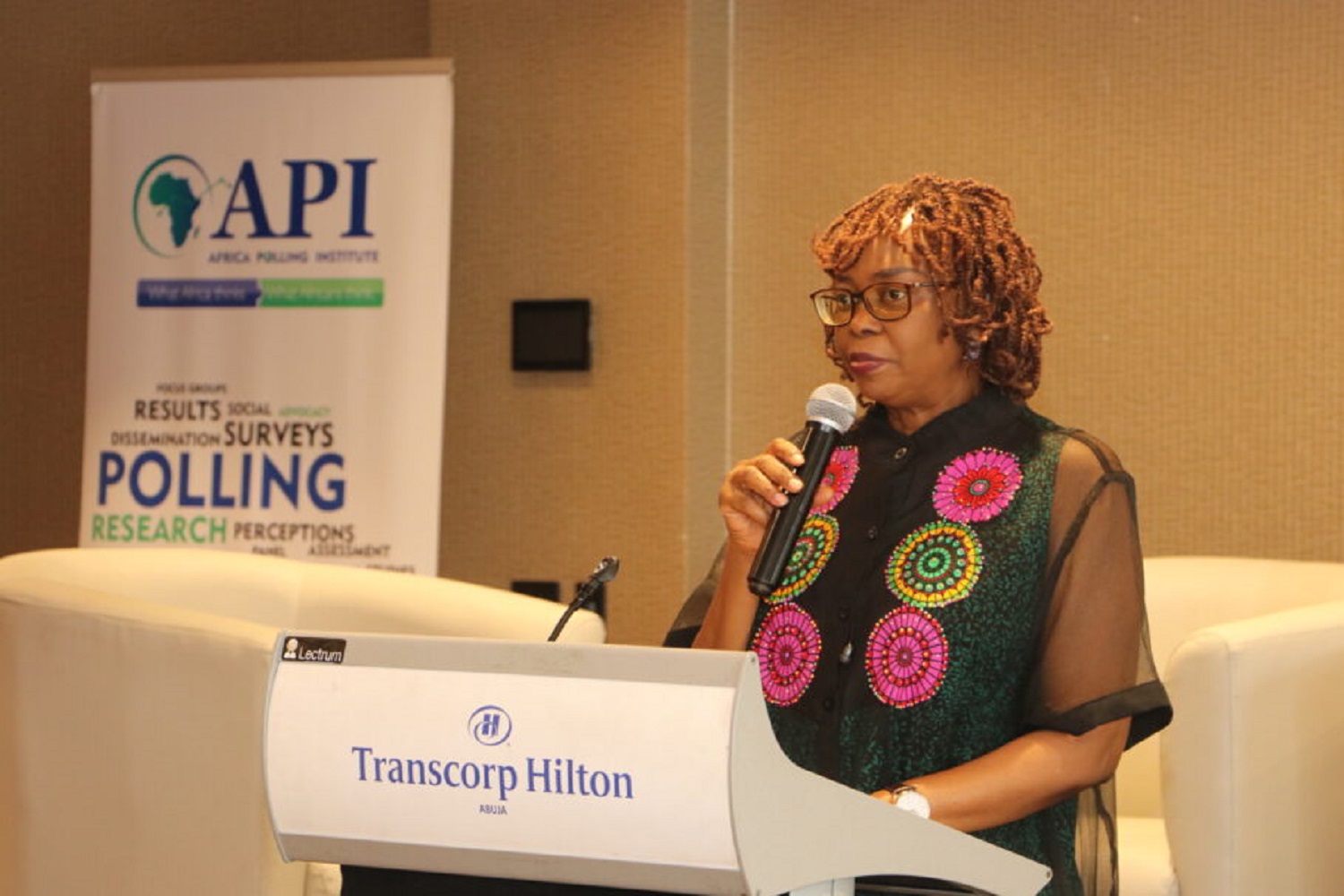API report has revealed that Nigeria is now more divided.
NewsOnline Nigeria reports that despite the calls and measures taken to ensure national unity, a new report by the Africa Polling Unit (API) has revealed that the country has become more divided in recent times.
The API 2022 report titled “The Nigeria Social Cohesion Survey” (NSCS) revealed that issues of ethnic, and religious identities and economic challenges in the country are factors posing a significant threat to social cohesion and keeping the country more divided.
ALSO: Veteran Nollywood Actor Saint Obi is Dead
The Executive Director, Africa Polling Unit, Prof. Bell Ihua, who presented the report at Transcorp Hilton Hotel, Abuja on Thursday, 11 May, said the Institute adopted key indicators such as identity, trust, social justice, patriotism, political participation, corruption, impunity and future expectations among others, to measure the state of social cohesion in the country.
The presentation organised by the Africa Polling Institute (API) was witnessed by the Ford Foundation’s Executive Vice President, Hilary Pennington and other foundation leaders on their visit to Nigeria.
The Institute has conducted the National Cohesion Survey in 2019 and 2021.
Prof Ihua said: “The 2022 National Cohesion Survey (NSCS2022) was designed to build upon the two past editions (2019 and 2022). It is a national Citizens Perception Survey undertaken by Africa Polling Institute with support from Ford Foundation.
“The broad aim of the survey is to generate credible and scientific data to stimulate constructive policy dialogue on how to address existing conflicts, design Peace building initiatives and enhance mutual trust between the government and the governed.”
The results of the Nigeria Social Cohesion Survey 2022 and the Social Cohesion Index show a score of 39.6 per cent. According to the report, this figure suggests that Nigeria still remains below the average threshold for a socially cohesive country.
API report further noted that when compared to 2021 Index, which was “44.32 per cent there is a clear evidence to suggest that the state of social cohesion in Nigeria has weakened over the last one year,”
According to Ihua, the study revealed there is more of ethnic consciousness among the citizens than national interest and that there is also a declining feeling of lack of social justice.
The study also showed there is waning trust on government and public institution by the citizens who trust religious and traditional leaders more.
The API executive director said that what is needed now is actions to address the weakening social cohesion.
The report made recommendations for both government, traditional rulers and religious leaders, civil society organisations in Nigeria and citizens to rally measures towards increasing national cohesion.
He thanked Ford Foundation for funding the project, noting that the intervention has helped to bring issue of weakening social cohesion in Nigeria to limelight.
He called on policy makers and others at the corridors of power to take the result of the study serious and implement reforms to tackle the challenges identified.
Highlights of the events were sharing of the presentation of the NSCS report findings, a panel session which discussed the current state of Nigeria’s cohesion, especially in the context of the recently concluded presidential elections; and exploration of strategies for resolving the country’s long-term conflicts in various locations for national unity.
The panelists were Dr Hussaini Abdu, Country Director, Care International Nigeria; Hauwu Evelyn Yusuf, Professor of Criminology and Gender Studies, Kaduna State University; Yemi Adamolekun, Executive Director, Enough is Enough Nigeria (EiE); and Prof. Ihua of API.
The panelists expressed concern about how political leaders exploit ethnic and religious differences to manipulate the citizens to their advantage during election season. They called on Nigerians to rise above ethnic, religious and other identity differences that the political class exploit to manipulate them and push for national integration for the overall growth and national development.
Earlier in her opening remarks, Regional Director Ford Foundation, West Africa, Dr Chichi Aniagolu-Okoye, Aniagolu-Okoye thanked API for undertaking the study and all other ones they had previously done to provide data that reveal the level of social cohesion in the country and pointing out the need for efforts to be made towards healing for national integration.
In her closing remarks, Pennington lauded API for the social cohesion survey which gave insights into level of division in the country. While commending the panelists for their intelligent submissions on issues hightening division in the country and what can be done to mitigate that, she urged those attributing the problem to what they call the “Nigerian factor” as the cause of the problem is a, to see it from a different angle.
The Foundation’s Executive VP said Nigerians have enormous energy and should learn to manage their divsersity in such a way that builds national cohesion, starting with their attitudes, instead of waiting for the government or civil society alone to fix the problems.
